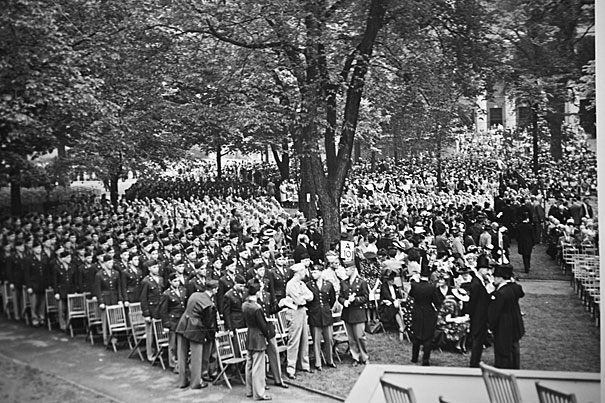Nation & World
-

Unfuzzy math: U.S. needs to do better
Ed School expert has some ideas, including a rethink of homework bans, after ‘discouraging’ results

-

What to expect when you’re elected
Bipartisan group of lawmakers gets to know Washington by way of the IOP
-

Defining and confronting campus antisemitism
Scholars in Jewish Studies say education, conversation can bolster efforts to defeat hate
-
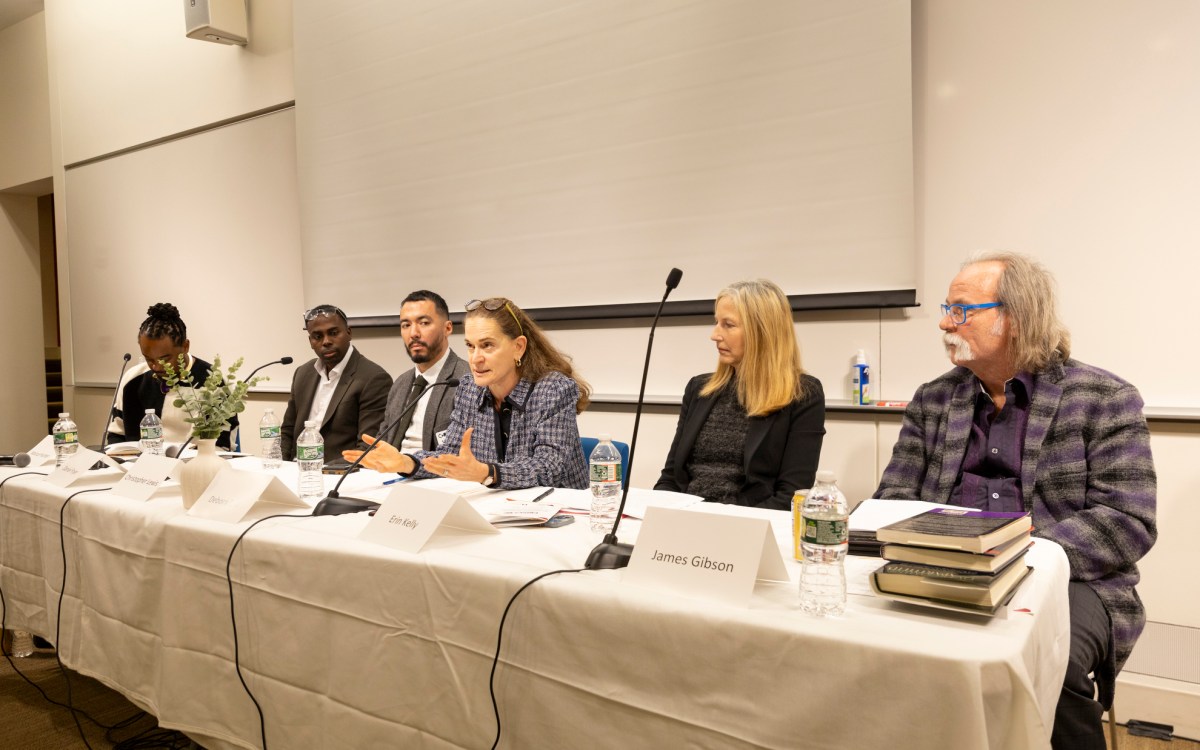
Are reparations the answer?
Harvard symposium explores case for restitution to Black Americans legally, economically, ethically
-
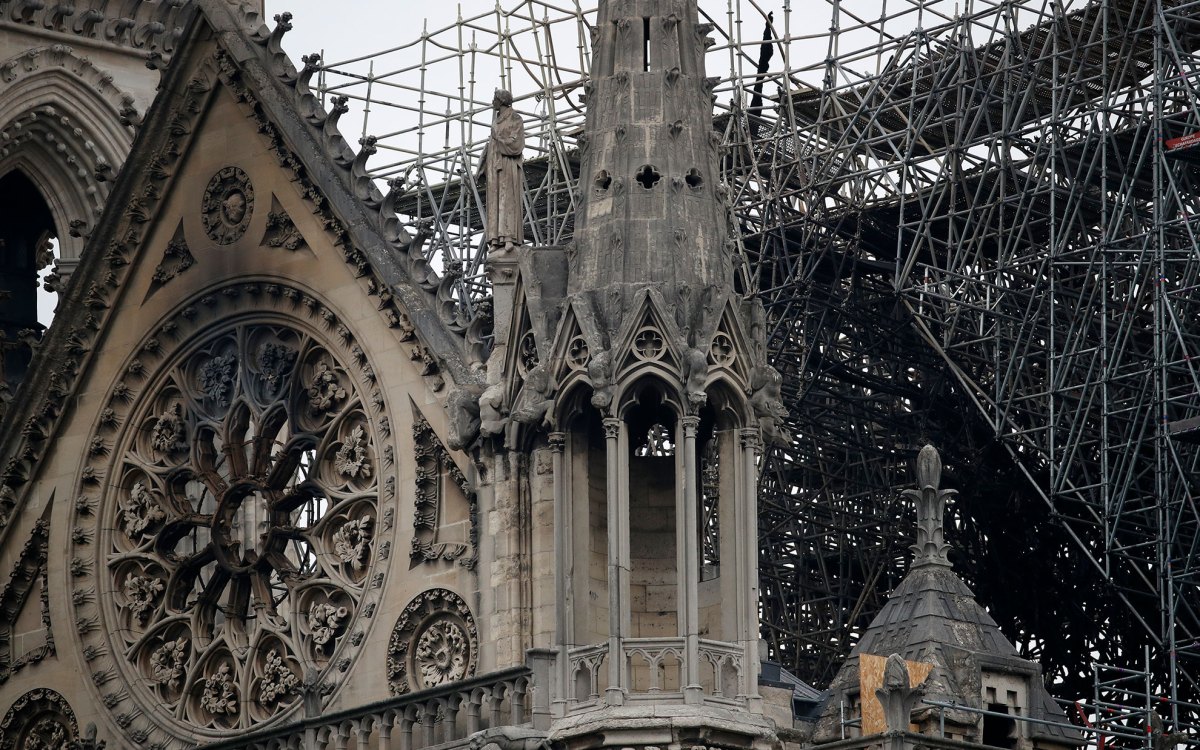
Exact cause of Notre-Dame fire still unclear. But disaster perhaps could’ve been avoided.
Leadership expert says foreseeable factors all contributed to complex failure. Consistent focus needed on best practices, rules, procedures.

-
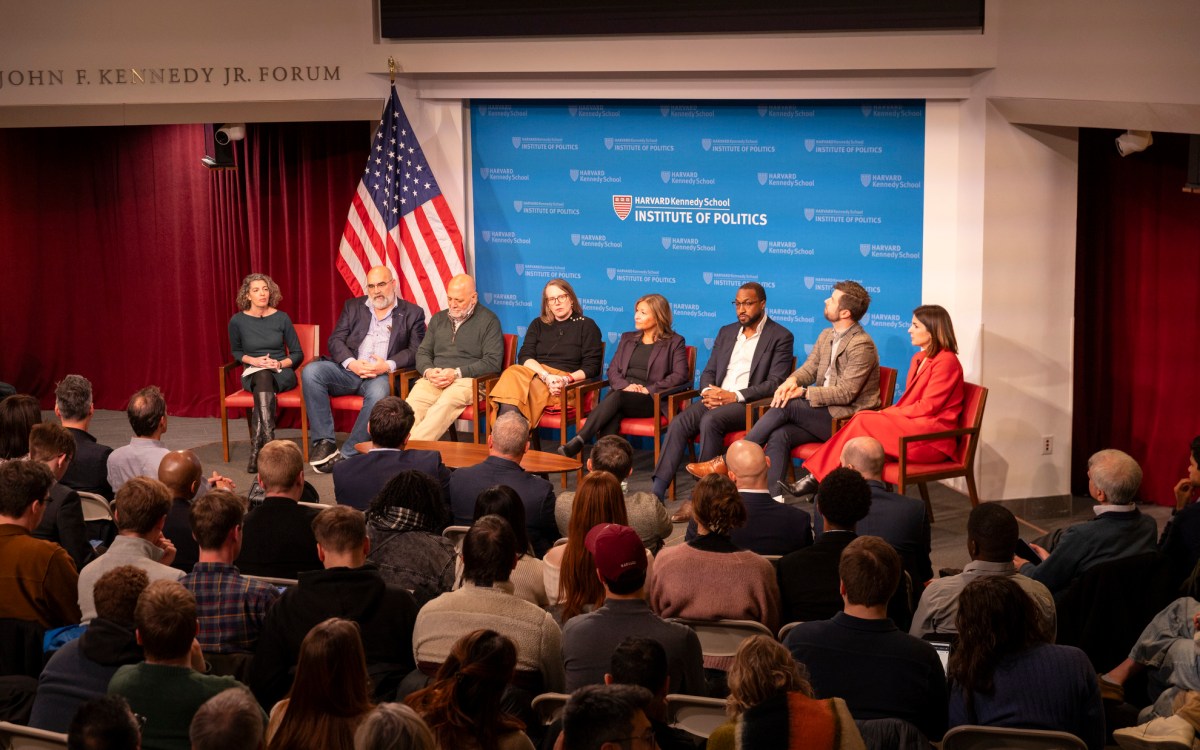
How the presidency was won, lost
Top campaign leaders from both sides talk about what worked, didn’t at Kennedy School postmortem
-
Your grandparents’ Tea Party
To conservatives, the Tea Partiers are patriots; to liberals, they’re a scourge on progress and civil society. Theda Skocpol, Victor S. Thomas Professor of Government and Sociology, used different terms to describe the activists to undergraduates: grandma and grandpa.
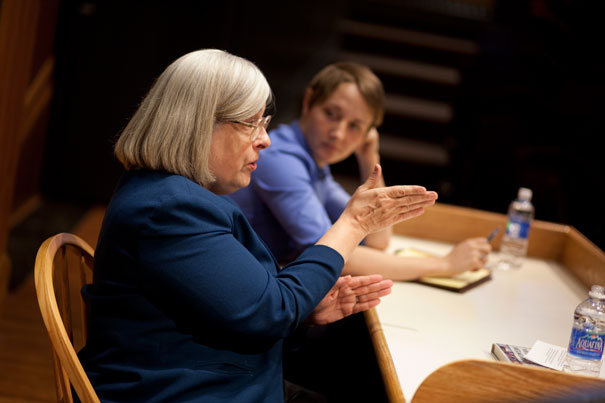
-
Putting yourself out there
Sponsored by the Harvard Club of Boston and the Harvard Alumni Association, “Networking NOW: The Learn-How-to-Network Event” was a multifaceted event, underscoring how business networking is a skill that can be learned, practiced, honed, and perfected.
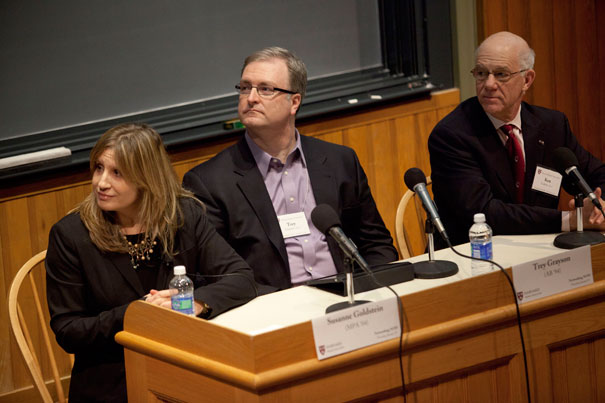
-
A symposium on teaching, learning
The Harvard Initiative for Learning and Teaching, created with a $40 million gift from Rita E. and Gustave M. Hauser, will host a symposium to explore excellence and innovation in the field.
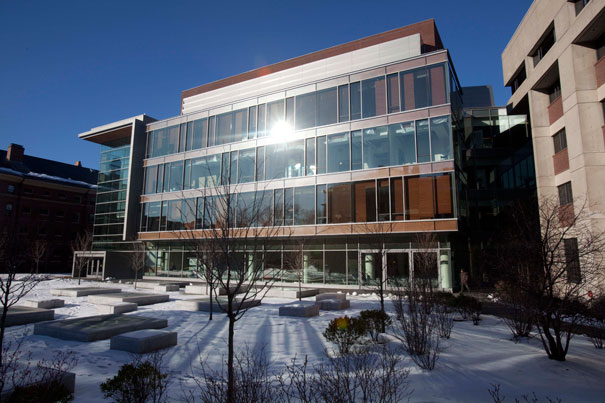
-
India, front and center
Harvard is increasing its engagement in India and surrounding South Asian nations in an effort to better understand a part of the world that is growing in global importance. Harvard President Drew Faust visits India this month.
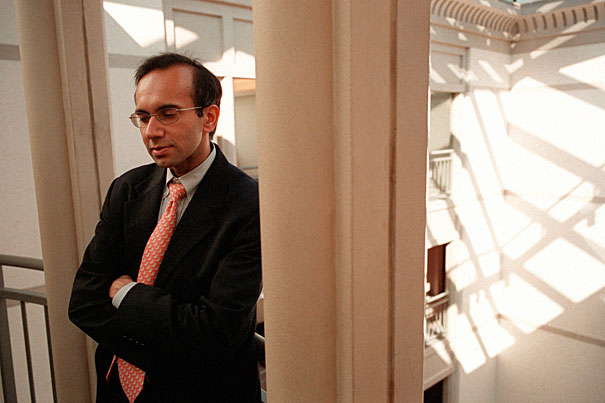
-
Women as peacemakers
Activists from across Africa and the Middle East drew from on-the-ground experience in a discussion of women’s role in peace efforts at John F. Kennedy Jr. Forum.
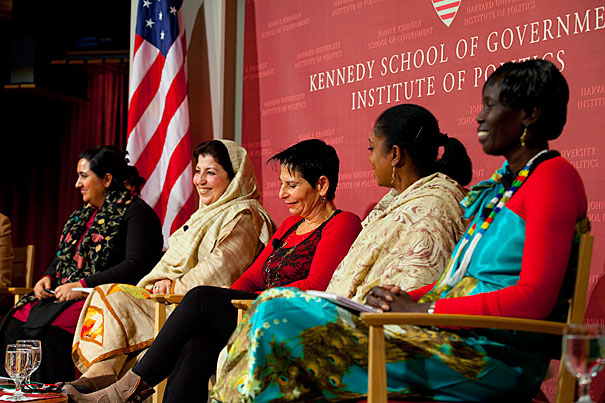
-
India sees gains from gender quota
A new research paper co-authored by Harvard Kennedy School Professor Rohini Pande finds that the system designating female leaders for selected village councils in India has resulted in substantive gains for girls in those villages — both in terms of aspirations and educational outcomes.

-
An echo of Harvard in New Mexico
The purpose of the trip was to generate interest for Harvard among Native American students, as well as to host a Harvard booth at the National Indian Education Association conference in Albuquerque. For many of the high school students we visited, the Harvard name was simply an abstraction.
-
Lights, Camera, Reaction
Harvard Kennedy School (HKS) students learn to master the art of a live television interview in the On-Camera Interview Basics workshop, one of many hosted by the HKS Communications Program.
-
Harvard poll predicts Obama loss
A new national poll of America’s 18- to 29-year-olds by the Institute of Politics (IOP) at the Harvard Kennedy School finds more millennials predict President Barack Obama will lose his bid for re-election (36 percent) than win (30 percent).
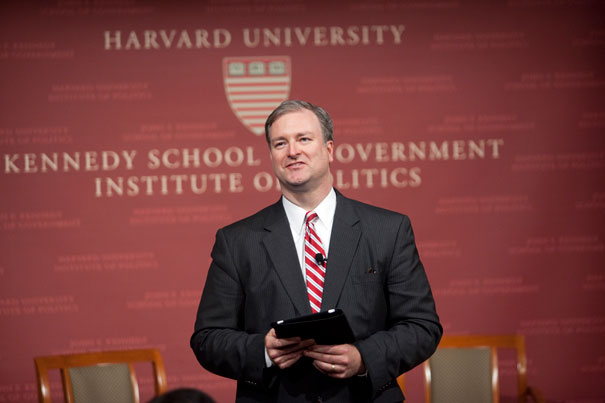
-
Rethinking work, beyond the paycheck
Eighty years ago, the idea that workers were purely rational beings motivated solely by money dominated American business. But a famous study known as the Hawthorne Experiments, led by two men at Harvard Business School, helped to found the human relations movement.
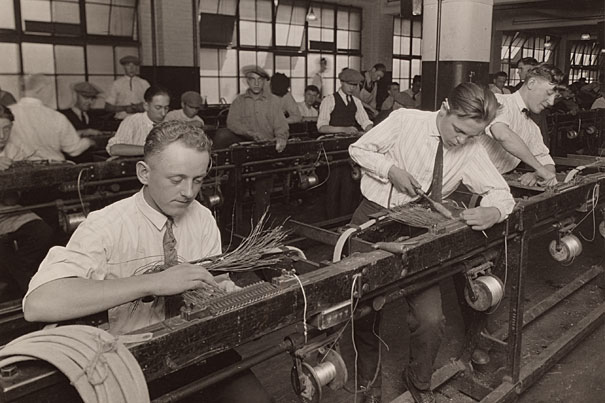
-
Dateline: Classroom
Pulitzer Prize-winning journalist, a Nieman Fellow, explains the dangers of his craft, and why he can’t return to Pakistan.
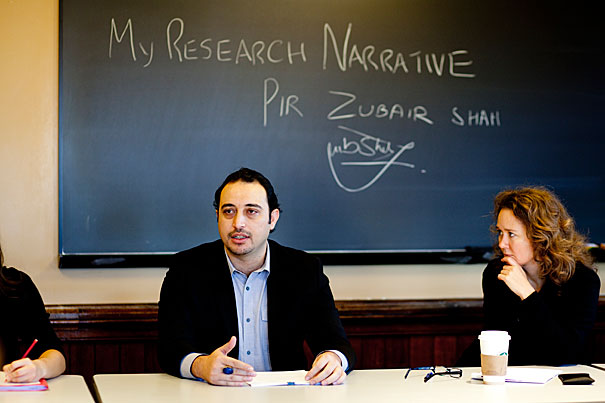
-
When to help a patient die
Legal analysts at a Harvard Medical School forum differ over whether a law allowing death with dignity or assisted suicide for terminally ill patients is right for Massachusetts. But they agreed that similar laws in Oregon and Washington have not proven to be a “slippery slope” that endangered vulnerable patients.
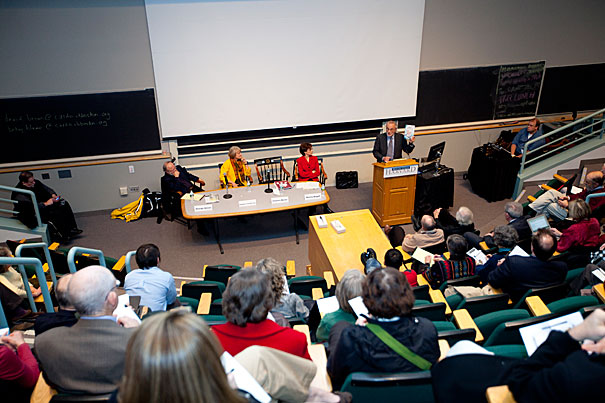
-
The import of civic education
Civic education, an important element for democracy to flourish, has fallen to public schools, universities, and colleges to provide in recent years. A Harvard panel discussed what’s required for the citizenry to be educated to make informed decisions.
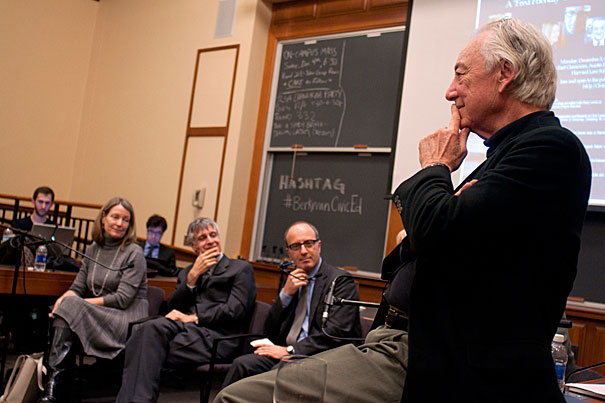
-
Divinity School student in documentary
Sonya Soni, a Harvard Divinity School student, is featured in the documentary “Keep a Child Alive with Alicia Keys,” which airs throughout December on Showtime.
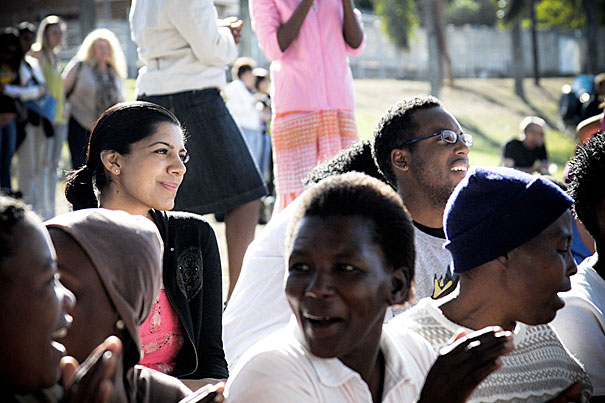
-
Germany, again a linchpin
For the third time in a century, Germany stands ready to change the fortunes of Europe — this time, analysts believe, for the better, said a founder of Harvard’s Minda de Gunzburg Center for European Studies.
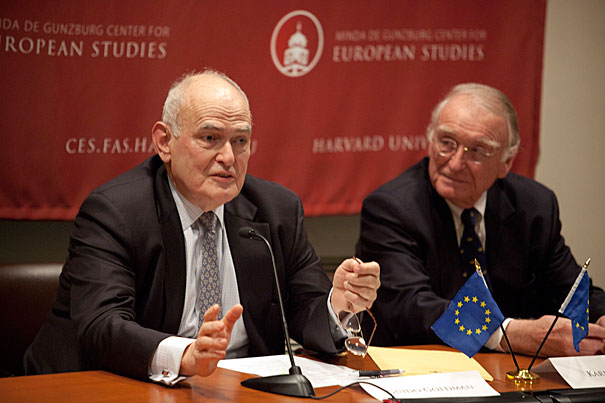
-
Good works, and fine experience
Harvard students made good use last summer of the Presidential Public Service Fellowship Program, a new initiative that supports good works through financial grants.
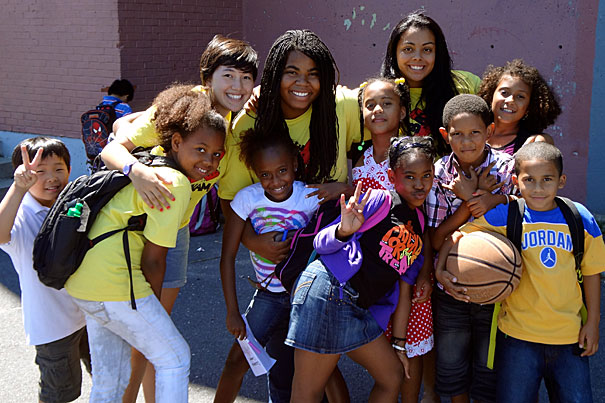
-
Dealing with inequality
A panel discusses “The Growing Challenge of Inequality,” an issue easily described and summarized, but difficult to solve, the speakers said, given the political and economic climate that currently dominates the United States.
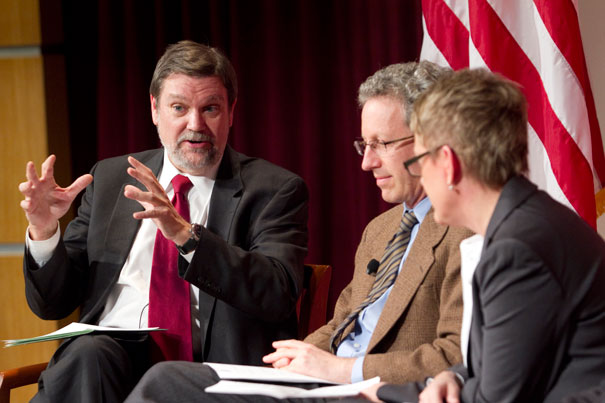
-
How to teach students about truth
Professor Howard Gardner explored how to teach students the primal concepts of truth, beauty, and goodness during a lecture based on his newest book.
-
A spotlight on China
Fund supports Harvard programs in everything from student activities to faculty research in rising Asian giant.
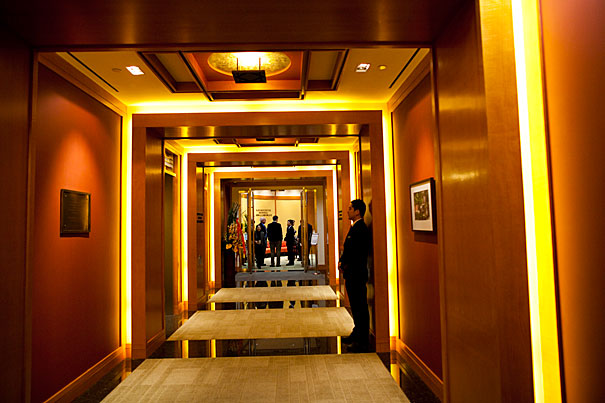
-
The ripple of fiscal problems
Eurozone’s ongoing problems create a ripple effect in developing nations, says World Bank president.
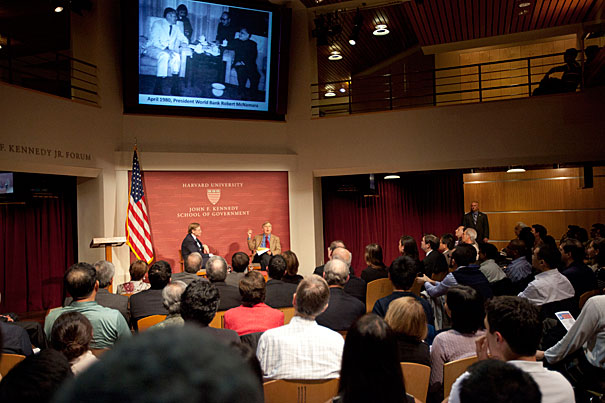
-
Jobs wanted
Parts of the U.S. economy have been recovering for more than a year, but American jobs haven’t yet returned along with renewed profits. Harvard experts offer insights into what large-scale unemployment means for the nation, and what policymakers and others can do to fix a balky system.
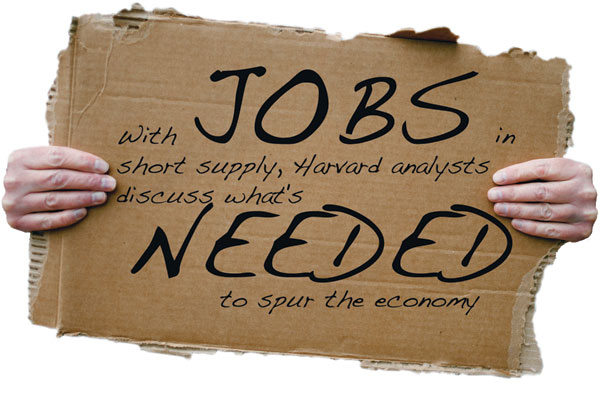
-
Gingrich opposes campaign limits
Republican presidential candidate Newt Gingrich, speaking at Harvard Kennedy School’s Institute of Politics, says the political system would run more smoothly if campaign donors could contribute what they wish.
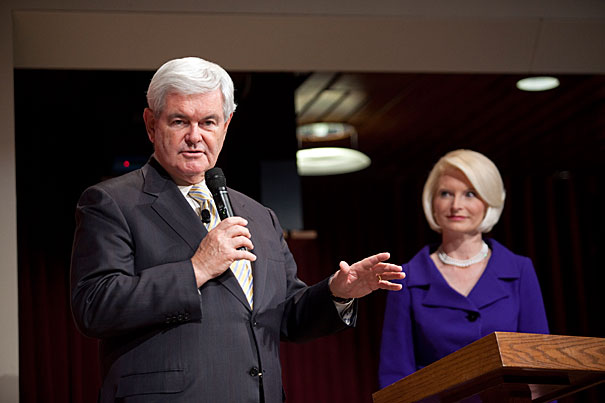
-
Anita Hill looks back, and ahead
Legal scholar Anita Hill discussed her experience during the 1991 confirmation hearings of Supreme Court Justice Clarence Thomas and the civil rights work that it inspired.
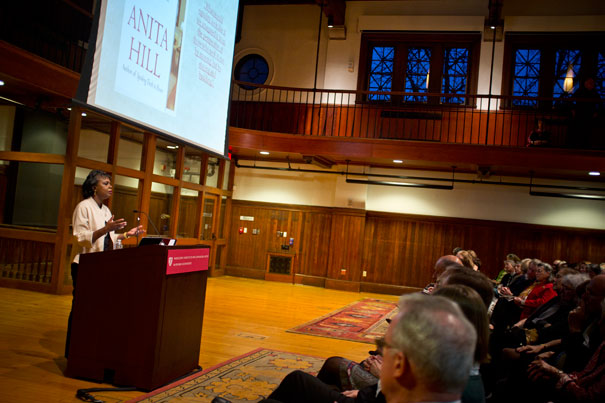
-
Introducing the i-lab
The Harvard Innovation Lab officially opened to the public Nov. 18. The ribbon cutters included President Drew Faust and Boston Mayor Thomas M. Menino.
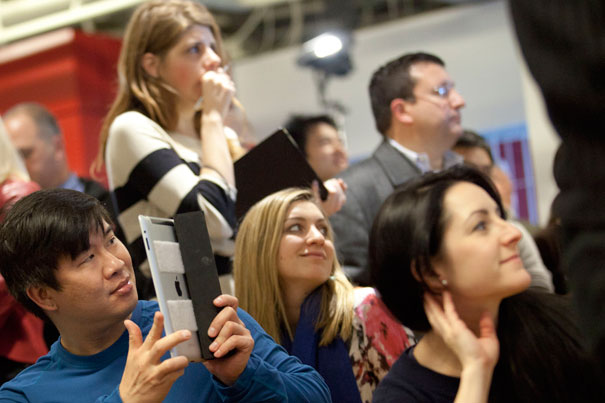
-
Moot points, well made
The Harvard Law School teams in the showdown round of the Ames Moot Court Competition tried to persuade a panel headed by U.S. Supreme Court Justice Sonia Sotomayor to change the law of the land.
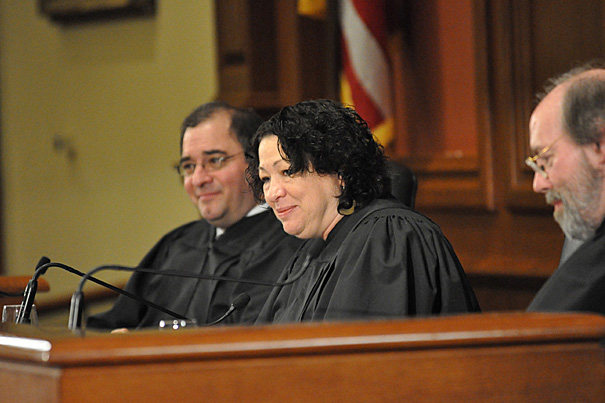
-
Conservatism is in ‘crisis’
Andrew Sullivan, political commentator and blogger with The Daily Beast, gave the 2011 Theodore H. White Lecture on Press and Politics at the John F. Kennedy Jr. Forum on Thursday.
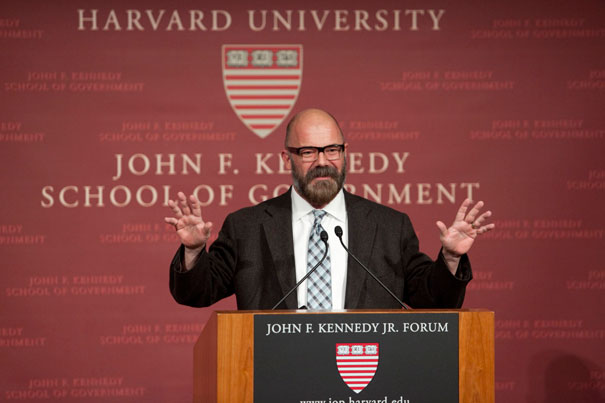
-
Rewarding nation’s problem-solvers
Finalists for the Innovations in American Government Award presented their initiatives today at the Harvard Kennedy School (HKS) before the National Selection Committee, chaired by Anthony Williams, the former mayor of Washington, D.C.
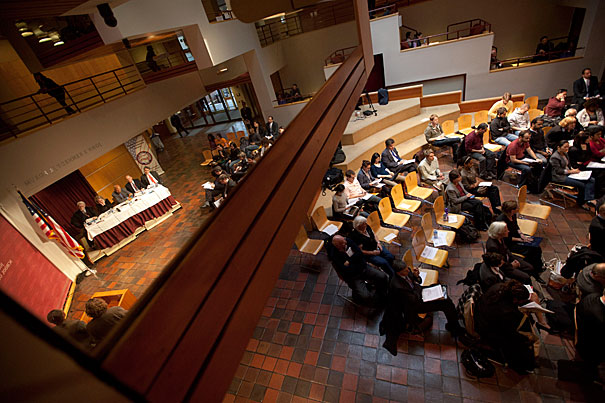
-
Obama’s narrative
Mixing historical perspective, personal reminiscence, and psychological analysis, Harvard Law School Professor Charles J. Ogletree Jr. kicked off a three-part lecture series titled “Understanding Obama” Tuesday at the Barker Center as part of the Nathan I. Huggins Lecture Series.
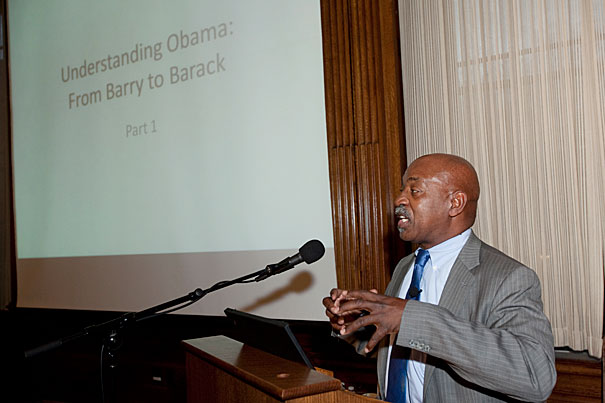
-
The return of ROTC
Among the top Harvard stories of 2011 was the return of the Reserve Officers’ Training Corps (ROTC) to campus after an absence of 40 years. In March, the University signed an agreement with the Navy. By September, offices had opened in Hilles Hall for the Naval ROTC’s Old Ironsides Battalion.
-
Harvard goes to war
Harvard University’s expansive role in World War II, from research to recruits, helped the Allies to triumph.
